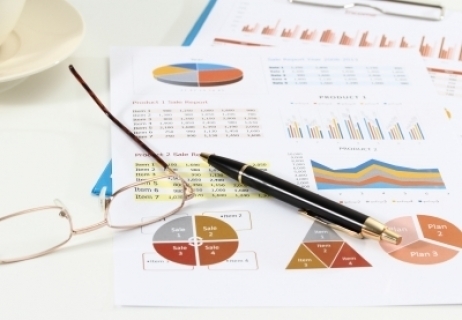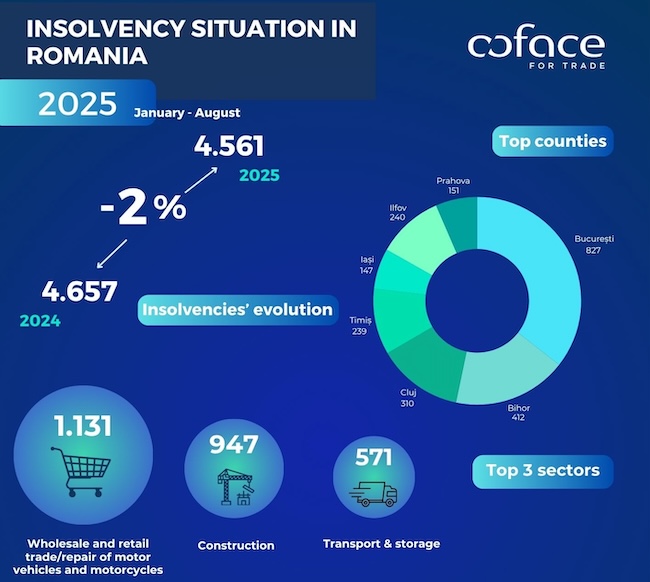Fitch affirms Romania's rating at 'BBB-' and expects positive economic evolution in the near term

Fitch Ratings has affirmed Romania's long-term IDR (Issuer Default Rating) at ‘BBB-‘ and local currency IDR at ‘BBB’, respectively, the outlooks remaining stable, indicates a release of the credit rating agency.
Similarly, the issue ratings on senior secured foreign and local currency bonds have been affirmed at ‘BBB-‘ and ‘BBB’.
The Country Ceiling has been maintained at ‘BBB+’, while the short-term foreign currency IDR has been kept at the same ‘F3’ rating.
“Romania's ratings are underpinned by its marginally better fiscal position than its 'BBB' peers, and its relatively positive economic outlook, with GDP expected to grow at close to potential over the next two years. However, the rating is constrained by structural weaknesses in the economy, which continue to constrain progress towards more positive developments in the banking sector, business environment and income convergence towards higher rated peers,” explains the said release.
Affirming these ratings reflects better-than-expected GDP growth, corroborated by a resilient recovery in domestic demand which offsets lower growth in net exports. For 2015 and 2016, Fitch anticipates growth rates of 2.7 percent and 2.8 percent, in line with estimations of the EU Commission or the World Bank.
As regards fiscal finances, the credit rating agency is expecting a slightly weaker revenue and expenditure forecast than the government for this year. According to Fitch specialists, Romania will not be able to meet its medium-term objective (MTO) in 2015 (structural deficit 1 pct of GDP and headline fiscal deficit of 1.2 pct of GDP), the forecast indicating a headline deficit of 1.5 percent of GDP, whereas general government debt-to-GDP will rise at around 39 percent of GDP.
Fitch observes that the current account deficit has narrowed continuously over the past years, reaching to 0.9 percent of GDP in 2014 which is below the 2 percent median CAD of 'BBB' peers. This context, upheld by higher net FDI inflows in 2015-2016, should facilitate comfortable financing of the CAD in the near term. On the other hand, Romania's external finances are weighed down by a high near external debt ratio (36 pct of GDP in 2014), which is significantly above the 'BBB' median (4.6 percent of GDP).
“Romania's ratings are constrained by a number of structural weaknesses, including the dominance of industry by inefficient state-owned entities and weak public infrastructure. Structural bottlenecks constrain Romania achieving stronger growth rates, and limit the country's convergence progress towards western European standards of living. Romania is one of the poorest EU states. GDP per capita is below the 'BBB' median and 55% of the EU average,” adds Fitch.
In spite of balanced upside and downside risks to the rating, an improved rating could be supported provided by higher-than-anticipated economic growth and an intensifying convergence to income levels of higher rated peers, a faster and consistent reduction in external debts ratio, and a progress in structural reform, especially in terms of infrastructure, which is rather poor, and industry, sector dominated by inefficient state-owned companies.
In contrast, a significant fiscal loosening that jeopardizes the stability of public finances and pushes Romania's public debt ratio above the 'BBB' median along with a loss of momentum in implementing key structural reforms and external macroeconomic or geopolitical shocks that significantly erode Romania's fiscal and external buffers.






